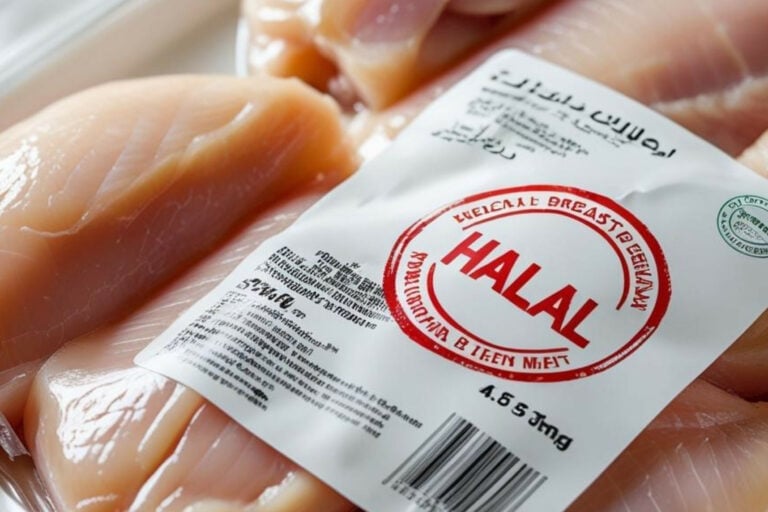December 31, 2025 | 15:10 GMT +7
December 31, 2025 | 15:10 GMT +7
Hotline: 0913.378.918
December 31, 2025 | 15:10 GMT +7
Hotline: 0913.378.918

In Russia, expanding halal food exports is a target set at government level. Photo: Canva.
In 2024, Russia’shalal food exports increased 80% compared with the previous year, reaching US$382 million, first deputy agricultural minister Elena Fastova outlined during an industry conference in Kazan, Russia.
Poultry accounts for over half of Russian halal exports – US$211 million in 2024, against US$105 million in the previous year. Other segments showed a modest increase in deliveries. For instance, halal beef exports climbed from US$41 million in 2023 to US$74 million last year, while lamb exports inched up from US$36 million to US$41 million and ready-to-use halal products from US$9 million to US$13 million, Fastova estimated.
Halal standards and certification
“The main consumer countries [of Russian halal food] are Saudi Arabia, the UAE and Iran. We are also developing the export of halal products to Algeria, Kuwait, Jordan and Egypt,” Fastova added.
Russia is also struggling to get certification under the most common halal standards. According to Fastova, 6 different halal certification centres are currently operating in Russia. The global halal market is segmented by the different certification systems. Saudi Arabia, the UAE, Turkey, the CIS and Indonesia have different halal standards.
Bottomless potential
Russia is only at the beginning of its path to expanding agricultural and food exports to Islamic countries, local officials believe. The potential of Russian halal food exports is estimated at US$26 billion per year, Ilya Iliyshin, head of Agroexport, a government agency facilitating agricultural export, revealed during the same event.
According to marketing studies cited by Iliyshin, the global demand for the halal food market is estimated at US$1.4 trillion per year, with 30% of this money spent in the countries of the Middle East and North Africa.
“The halal product market is one of the fastest-growing segments in the global food market, which is associated with the increase in the number of Muslims, who make up 25% of the world’s population,” Iliyshin stated.
Russia is working on entering the Malaysian market, which also has an independent halal certification system. Under the government projections the Russian halal food exports is due to consistently grow at least until 2030.
State task
Expanding halal food exports is a target set at government level. Russian authorities make coordinated efforts to help Russian exporters reach out to new markets. “The Ministry of Agriculture is ready to effectively organise communication between exporting companies and international partners,” Fastova emphasised.
(Poultryworld)
/2025/12/29/2812-1-182339_699.jpg)
(VAN) The price of mangrove forest carbon credits is high because this forest type not only delivers significant environmental value but also plays a crucial role in addressing other issues.
/2025/12/29/5840-0-115141_514.jpg)
(VAN) From 2026, many EU markets will require shrimp to be electrically stunned before ice immersion, forcing exporters to change technologies to retain market share.
/2025/12/28/4951-2-104623_113.jpg)
(VAN) Rubber exports are forecast to remain under downward pressure in the coming period, as global rubber consumption shows signs of slowing, according to ANRPC's projections.
/2025/12/28/5120-1-093308_94.jpg)
(VAN) Many agricultural products are of sufficient quality to join global supply chains, yet fail to pass the first gateway when entering international markets due to packaging and information in English.
/2025/12/27/2453-2-172141_426.jpg)
(VAN) The sharp decline in the number of EU warnings in 2025 is regarded as a positive signal for the future orientation of Viet Nam’s agricultural exports.
/2025/12/27/1547-2-220434_536.jpg)
(VAN) For many businesses, exporting is a costly trial. But for those choosing a long-term path, small orders are a way to keep markets and learn the rules.
/2025/12/27/2522-1-090748_662.jpg)
(VAN) The 'Large-Scale Rice Field' project has been implemented in An Giang across a total area of more than 5,582 ha, comprising 73 large-scale fields and attracting the participation of 2,027 farmer households.